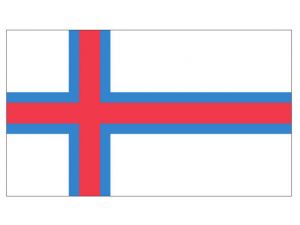Language/Faroese/Vocabulary/Modes-of-Transportation
| ◀️ Possessive Pronouns — Previous Lesson | Next Lesson — Travel Vocabulary ▶️ |
Introduction[edit | edit source]
In this lesson, we will explore the Faroese vocabulary related to travel and transportation, specifically focusing on different modes of transportation. Learning these words is essential for navigating the Faroe Islands and communicating with locals. Whether you're exploring the capital city of Tórshavn or venturing into the picturesque countryside, knowing how to talk about modes of transportation will greatly enhance your experience. So let's get started!
Modes of Transportation[edit | edit source]
When it comes to getting around the Faroe Islands, there are various modes of transportation available. Here are some key words and phrases to help you navigate the transportation system:
Car[edit | edit source]
The word for "car" in Faroese is "bilur." Cars are a common mode of transportation in the Faroe Islands, especially for exploring the more remote areas. Here are a few examples:
| Faroese | Pronunciation | English |
|---|---|---|
| bilur | /'bilur/ | car |
- Henda er mítt bilur. - This is my car.
- Tú kanst leiga ein bil á flugvøllinum. - You can rent a car at the airport.
Bus[edit | edit source]
Buses are another popular mode of transportation in the Faroe Islands, particularly for traveling between towns and villages. The Faroese word for "bus" is "bussur." Here are some examples:
| Faroese | Pronunciation | English |
|---|---|---|
| bussur | /'bʉsːʊr/ | bus |
- Eg taki bussin til Tórshavnar. - I take the bus to Tórshavn.
- Hvussu ofta fer bussurin til Klaksvíkar? - How often does the bus go to Klaksvík?
Train[edit | edit source]
While the Faroe Islands do not have a train system, it's still useful to know the word for "train" in Faroese. The word is "tóg."
| Faroese | Pronunciation | English |
|---|---|---|
| tóg | /'tɔːk/ | train |
- Eg havi aldrigi sæð eitt tóg. - I have never seen a train.
- Hvussu mikið kostar eitt tógferðslutickett til Danmark? - How much does a train ticket to Denmark cost?
Airplane[edit | edit source]
For traveling to and from the Faroe Islands, airplanes are the main mode of transportation. The Faroese word for "airplane" is "flugvøllur." Here are a few examples:
| Faroese | Pronunciation | English |
|---|---|---|
| flugvøllur | /'flʊkˌvœlːʊr/ | airplane |
- Eg fer við flugvøllinum til Íslands. - I'm flying to Iceland with the airplane.
- Hvussu langur er flugvøllurin í Vága? - How long is the runway in Vágar?
Ferry[edit | edit source]
The Faroe Islands consist of multiple islands, so ferries play a crucial role in transportation. The Faroese word for "ferry" is "ferja." Here are some examples:
| Faroese | Pronunciation | English |
|---|---|---|
| ferja | /'fɛrja/ | ferry |
- Ferjan fer til Suðuroyar. - The ferry goes to Suðuroy.
- Hvussu nógv kostar ein ferjaeyka til Sandoyar? - How much does a ferry ticket to Sandoy cost?
Cultural Insights[edit | edit source]
Transportation in the Faroe Islands has a unique cultural significance. Due to the rugged terrain and the scattering of islands, modes of transportation are vital for connecting communities and providing access to essential services. The Faroese transportation system is well-developed, despite the challenging geography. Ferries, in particular, are an integral part of everyday life, allowing residents to travel between islands and transport goods. The ferry trips also offer stunning views of the Faroe Islands' landscapes, making them a popular choice for tourists.
Historically, before the advent of modern transportation, the Faroese relied on boats and rowing to navigate the archipelago. These traditional methods of transportation are still celebrated today through events like the annual Faroese rowing competitions. These competitions showcase the Faroese passion for boating and their maritime heritage.
Practice Exercises[edit | edit source]
Now it's time to practice what you've learned! Complete the following exercises to reinforce your understanding of the Faroese vocabulary for modes of transportation:
1. Match the Faroese words with their English translations: a) bilur b) bussur c) tóg d) flugvøllur e) ferja
i) bus ii) train iii) car iv) airplane v) ferry
Solution: a) iii) car b) i) bus c) ii) train d) iv) airplane e) v) ferry
2. Fill in the blanks with the appropriate Faroese word:
a) Eg fer við __________ til Suðuroyar. b) Tú kanst leiga ein __________ á flugvøllinum. c) Hvussu ofta fer __________ til Klaksvíkar? d) Eg havi aldrigi sæð eitt __________. e) Hvussu langur er __________ í Vága?
Solution: a) ferja b) bilur c) bussur d) tóg e) flugvøllur
Conclusion[edit | edit source]
Congratulations! You've learned the Faroese vocabulary for various modes of transportation. This knowledge will undoubtedly enhance your experience in the Faroe Islands, allowing you to navigate the transportation system with ease and communicate effectively with locals. Remember to practice using these words in real-life situations to reinforce your learning. Stay tuned for the next lesson in our "Complete 0 to A1 Faroese Course"!
Other Lessons[edit | edit source]
- Seasons
- Days of the Week
- Numbers 1 20
- Health
- Introducing Yourself
- Animals
- Food
- Common Foods
- Travel Vocabulary
- Weather Vocabulary
| ◀️ Possessive Pronouns — Previous Lesson | Next Lesson — Travel Vocabulary ▶️ |

